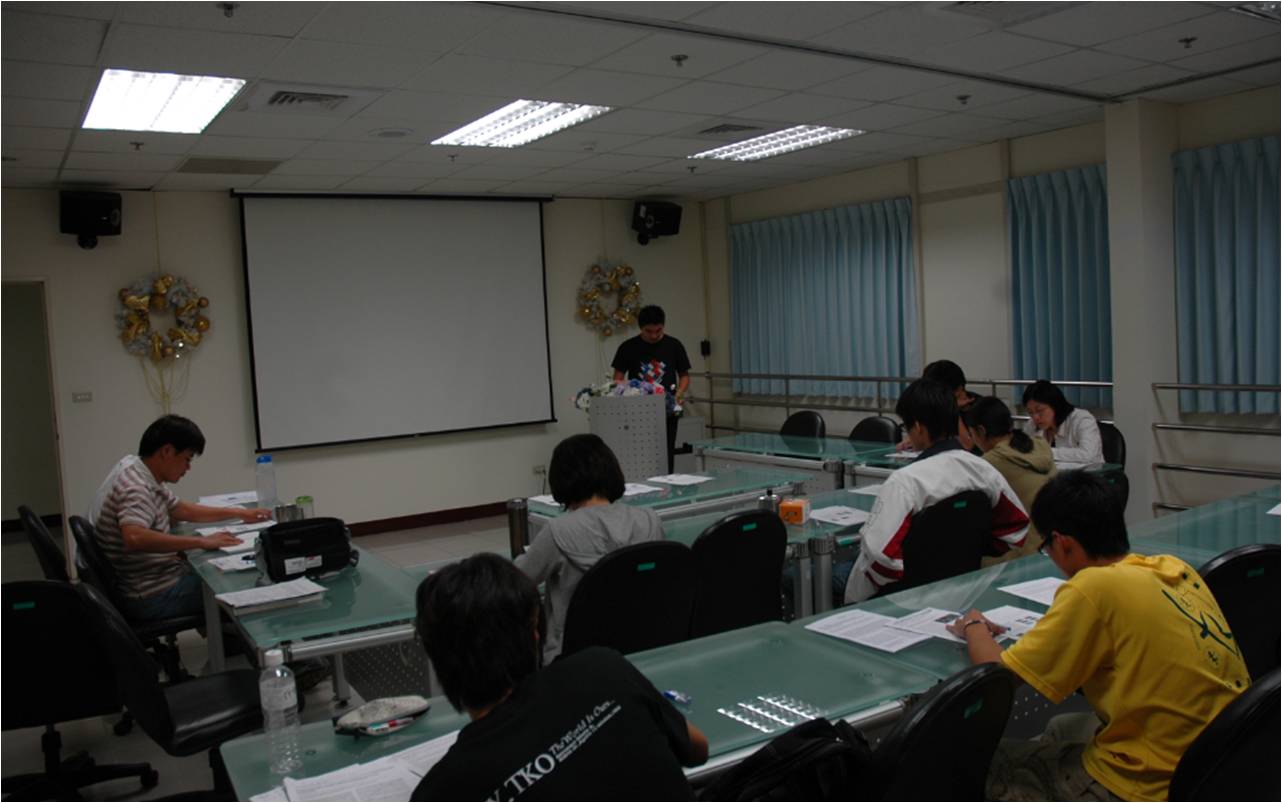期刊論壇(二)讀書會
出自KMU Wiki
緣起
這是一個"期刊論壇的讀書會"主要是針對目前生物期刊發行種類多樣且數量也龐大,憑一己之力量所能閱讀的文章有限,而自己獨自一人對於文章內容的解讀上也易產生迷思,因此想藉由多人閱讀生物期刊,且每人所喜好的主題有所差異下,而能達到短時間就能有多元化的知識刺激,而且這樣開放性的討論空間,讓在場的眾人提供自己的背景知識及腦力激盪,總能再延伸更多的想法與問題,這是個能讓對科學研究有興趣的人感到十分exciting。
內容
另外基於尊重著作權,所以下面所提到的期刊文章內容的圖表部分並沒有附上,但是文章都是高醫圖書館都有提供的期刊,請有興趣的人可按照所附的資訊去做檢索,謝謝。
''((A))''
Title Down-regulation of Polo-like kinase 1 elevates drug sensitivity of breast cancer cells in vitro and in vivo.
Authors Birgit Spänkuch, Sandra Heim
Source Cancer Res (2006) 66, 5836—5846
Why do? Polo-like kinase 1(Plk1)是促進細胞進行有絲分裂的重要因子,但是許多研究指出,癌細胞中的Plk1會過度的表現,進而讓癌細胞大量的增生,且癌細胞大量的增生也使得抗癌藥的治療效果不彰,所以作者想藉由抑制Plk1的表現來降低癌細胞大量的增生,並提升抗癌藥物治療癌症的效果。
How do? 利用了Antisense oligonucleotides(ASO)的技術來抑制癌細胞中Plk1的表現,Plk1-specific ASO是由一段能專一性辨認Plk1的mRNA序列組成,藉由Plk1-specific ASO的辨認能抑制Plk1的表現,進而阻礙癌細胞大量的增生,達到提升抗癌藥的治療效果。
Result (1) 將Plk1-specific ASOs(濃度10nM、50nM、100nM、250nM)以transfection的方式送入不同乳癌細胞株中(MDA-MB-435、MCF-7、BT-474),利用RT-PCR及Western blot去偵測細胞中Plk1 cDNA及Plk1 protein的表現情形,從實驗結果來看,給予了Plk1-specific ASO後,癌細胞中Plk1的表現有明顯的下降,且隨著給予的濃度越高,Plk1被抑制的效果就越好,這證明Plk1-specific ASO是能成功抑制癌細胞Plk1的表現(請見期刊中的Fig. 1)。 (2) 接著作者進一步要在In vitro偵測Plk1-specific ASO提升抗癌藥抑制乳癌細胞增生的效果,實驗分成兩組,一組是結合了Plk1-specific ASO與抗癌藥的結合治療,另一組是只給予抗癌藥的單一治療,將兩組結果做比較,實驗結果顯示,結合了Plk1-specific ASO的使用,抗癌藥抑制癌細胞增生的效果較為顯著(請見期刊中的Fig. 3及4)。 (3) 最後作者要在In vivo腫瘤動物模式中偵測Plk1-specific ASO提升抗癌藥抑制腫瘤生長的效果,將建立好皮下腫瘤的裸鼠分別給予不同實驗組的治療(PBS control、單一抗癌藥、單一Plk1-specific ASO、結合Plk1-specific ASO及抗癌藥),實驗結果顯示,結合了Plk1-specific ASO後,抗癌藥能更有效的抑制腫瘤生長(請見期刊中的Fig. 6-A)。
Conclusion (1) 目前已有許多實驗利用ASO的技術來辨認不同的致癌基因,這項技術雖然能抑制住致癌基因的表現,但是由於癌細胞增生的路徑有非常多種,只給予單一致癌基因的抑制,其治療腫瘤生長的效果仍是有限的。 (2) ASO的技術同樣也會對正常細胞產生副作用,所以在使用上仍有許多的限制,但若能拿捏好使用劑量,或是開發只針對腫瘤特定基因的抑制,則此技術將是一項方便又有潛力的治療癌症的新方法。
Discussion (1) Antisense oligonucleotides的優勢 a. 專一性高,只辨認與該片段互補的基因。 b. 可塑性高,能依照所要抑制的片段而設計出不同的序列。 c. 能降低抗癌藥的使用量,使用量一但減少就能減緩因抗癌藥而產生的強大副作用。
''((B))''
Title CD24 and Siglec-10 selectively repress tissue damage-induced immune responses
Authors Guo-Yun Chen, Jie Tang, Pan Zheng and Yang Liu
Source Science 323:1722-1725 (March 2009)
Why do? Mammalian immune systems are equipped with an array of receptors capable of recognizing pathogen associated molecular patterns. However these receptors also recognize ligands derived from the host itself. How the immune system differentiate these two kinds of immunostimulants is not clear at the moment.
How do? The authors generated CD24 and Siglec-10 knock out mice to study the effects of non-infection aroused inflammation。These authors injected high dose of acetaminophen to wild type, CD24 knockout or Siglec-10 knockout mice and recorded the survival rate
Result (1) The CD24 or Siglec-10 gene knockout mice are more susceptible to high dose acetaminophen treatments. Deficiency in CD24 resulted in 100% death rate, while lack of Siglec-10 resulted in 75 % death rate, following high dose acetaminophen treatment. (2) Proinflammtory cytokines such as TNF-, IL-6 and MCP-1 were hyperelevated in CD24 Knockout and Siglec-10 knockout mice, indicating dysregulation of immune activation in these two gene knockout mice (3) Co-immunoprecipitation assays indicated that HMGB1, a nuclear protein bind to CD24. Further co-immunopreciptation showed that CD24 associated with Siglec-10 upon HMGB1 binding. (4) Siglec-10 contains an immune receptor tyrosine-based inhibitory motif (ITIM) which is known to suppress immune response by down regulate transcription factor, NF-kB. HMGB1 binding to the CD24 which in turn associated with Siglec-10 indeed, inhibited the activation and the translocation of the p65 subunit of NF-kB to the nucleus.
Conclusion and Discussion (1) CD24 can pair with Siglec-10 to suppress immune activation. (2) HMG proteins, which normally reside in the nucleus, can bind to their own receptors only when tissue damage occurs, i.e., inflammation. (3) Immune suppression by CD24 and Siglec-10 pair may be a mechanism to keep an immune reaction within the body from overzealous. Or, it could represent an arm of immune regulation that play a vital role in resolving an immune response to pathogen, once the pathogen is largely eliminated by the effector arm of immune system. (4) New drug design may target the CD24-Siglec-10 pathway to control chronic inflammation such as autoimmune diseases. By enhancing CD24-Siglec-10 by agonists, immune response may be attenuated thus alleviated the symptoms.
''((C))''
Title Role of the virulence plasmid pR99 and the metalloprotease Vvp in resistance of Vibrio vulnificus serovar E to eel innate immunity
Authors E. Valiente, C.T. Lee, J. Lamas, L. Hor, C. Amaro.
sourceFish Shellfish Immunol. 2008 Jan;24(1):134-41. Epub 2007 Oct 25.
Why do? Vibrio vulnificus biotype 2 serovar E (VSE)主要可感染鰻魚,造成鰻魚大量死亡,然而目前對於VSE感染鰻魚的機制還不清楚。由於鰻魚其實擁有內在與外在保護的屏障,像是鰻魚皮膚的黏膜有lysozyme與cationic peptides等,但突破此外在屏障,血管中還有transferrin、補體與phagocytic cells可防止VSE感染。但為什麼VSE還是能感染鰻魚呢?在過去的研究中發現,metalloprotease Vvp與VSE能黏附到鰻魚黏膜與鰓有關,而plasmid pR99可使VSE在鰻魚中形成vibriosis。因此作者們便在此探討metalloprotease Vvp與 plasmid pR99在VSE感染鰻魚機制中扮演何種角色。
How do? 作者使用不同的VSE來進行感染機制研究。以下為不同的VSE: 1. CECT4999 (wild type)- 對鰻魚的血清有抗性 2. CT201- CECT4999△vvp 3. CT218- CECT4999沒有pR99
Result 1. 發現缺乏pR99的細菌,其膜會變得hydrophilic。 2. 缺乏pR99的細菌比起wild type存活率下降,且對於lysozyme與microbicidal peptides的敏感度增加。 3. 缺乏pR99的細菌比起wild type被phagocytic cells吞噬的比率上升。
Conclusion 由以上的結果可以知道,當VSE缺乏pR99時,會使得本身的膜變的hydrophilic,因此作者們也推論這可能是導致lysozyme與microbicidal peptides可更易進入對此種細菌,而造成效果增加的原因。同時也發現 VSE缺乏pR99可導致存活率下降,且易被phagocytic cells吞噬。 因此pR99似乎於VSE感染鰻魚中扮演一個很重要的腳色,所以未來也許可以針對pR99來研發防治鰻魚受VSE感染的方法。

